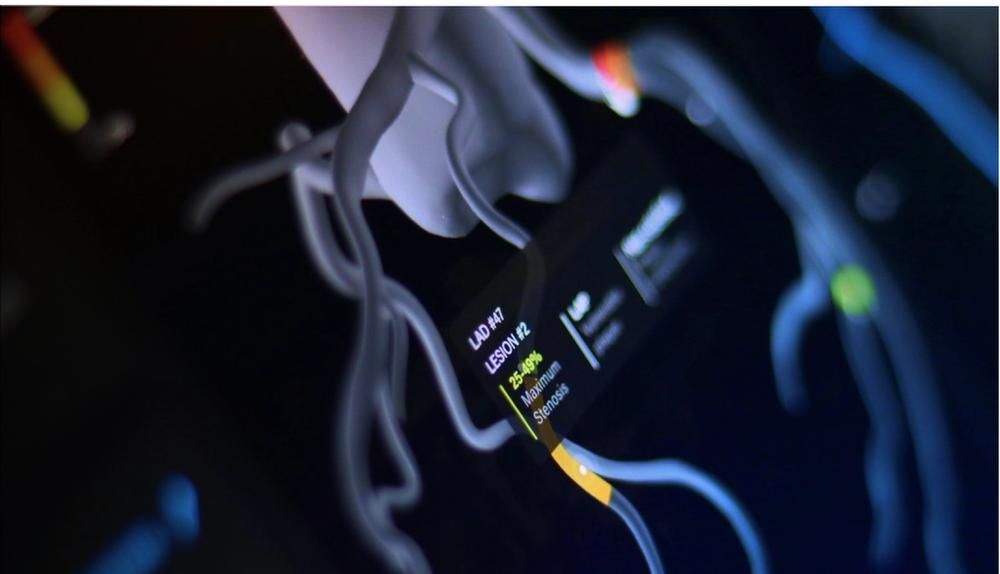Key points:
- Artrya to receive $1 million in Federal Government funding.
- Private funding round above target.
- Research paper selected as finalist in major global conference.
- Successful collaboration with University of Western Australia (UWA) and Harry Perkins Institute of Medical Research.
Perth, July 7, 2020:
Artrya, a developer of AI technology that more accurately identifies patients at risk of heart disease, has achieved key funding and research milestones as it drives towards product commercialisation.
The Federal Government this month awarded Artrya $1 million in funding through round three of the BioMedTech Horizons Program. Delivered by MTPConnect, the program supports innovative, collaborative health technologies that address unmet clinical needs.
Artrya was one of 10 companies chosen from 169 applicants nationally in this funding round. The grant will be used partly to employ PhD students from UWA in computer science and medicine, to further develop the technology.
“Artrya is changing how heart disease is diagnosed,” says co-founder and Executive Chairman John Barrington, AM. “Our vision is to harness the power of AI to treat more people who are susceptible to heart disease, and save lives.”
Barrington adds: “The funding will quicken Artrya’s push towards commercialisation as it refines its product, clinically validates the solution, attracts further equity and builds strong foundations for larger trials and regulatory approval.“
The commercialisation grant follows a successful private capital raising earlier this year. Artrya raised $2.8 million from sophisticated investors after originally seeking $2 million.
“Artrya is well placed to get its technology to market,” says Barrington. “Later this year, we will target regulatory approval, launch our beta product and promote a $10-$15 million Series A capital raising to support international expansion. Our technology is a world-first, Australian-made discovery through university and industry collaboration.”
Barrington says Artrya’s success reinforces WA’s potential to foster a thriving medtech ecosystem. “WA is producing outstanding medtech start-ups, has world-class universities and research institutions, and entrepreneurship is in the State’s DNA. The foundations are there to build industries of tomorrow in WA and futureproof our economy.”
Strong early gains
Launched in 2018, Artrya is collaborating with UWA and the Harry Perkins Institute of Medical Research. Artrya Chief Medical Officer, Professor Girish Dwivedi, is the inaugural Wesfarmers Chair in Cardiology at UWA (Harry Perkins Institute of Medical Research).
Dwivedi is an internationally renowned researcher in non-invasive cardiac imaging techniques. Dwivedi is an expert in vulnerable plaques that are prone to rupture and cause heart attacks.
Using AI algorithms, Artrya is developing a cost-effective, point-of-care solution to identify high-risk plaques and the burden of restricted blood flows (ischemia).
Artrya’s first study on its results has attracted international attention. The prominent Society of Cardiovascular Computed Tomography (SCCT) has accepted Artrya’s research paper, nominating it as a finalist for the top paper of SCCT’s annual conference this year.
Artrya’s work is timely. Coronary Artery Disease (CAD) is the world’s leading cause of death. An estimated 26 million people worldwide have CT Coronary Angiography (CTCA) scans annually to record pictures of their heart. Artrya’s technology overcomes several challenges in existing CAD tests. Most have limited accuracy and provide no information about coronary plaque characteristics. Other tests cannot assess ischemia or are costly and time-consuming, restricting their use.
Artrya co-founder and CEO John Konstantopoulos says the technology will benefit patients, clinicians and the community. “We believe our novel, unique solution can more accurately identify and predict patients who are vulnerable to heart disease. This information can be used to prevent acute coronary events and improve patient quality of life.”
Konstantopoulos says Artrya technology provides an automated diagnosis in less than 2 minutes, enabling clinicians to see more patients. “There is a shortage of cardiologists and radiologists worldwide. Left undiagnosed, patients remain at risk, incorrect treatment regimes are administered and cost burdens on health systems escalate. With ageing populations and the demand for medical services rising globally, significant delays in reporting can leave patients in critical situations.”
The consistent, high accuracy of the technology is another benefit. “Artrya reduces imaging costs and the risk of false diagnosis,” says Konstantopoulos. “By combining latest advances in AI, image processing, data analysis and CAD research, everything is cheaper, faster and more accurate. That is good for the healthcare system and communities.”
Konstantopoulos believes AI is the future of heart-disease diagnosis. “Early feedback from clinicians on Artrya’s technology is encouraging. Clinicians see the power of AI to improve the efficiency and accuracy of heart scans. Most of all, they see the potential to treat more patients and reduce the incidence of heart attacks.”
